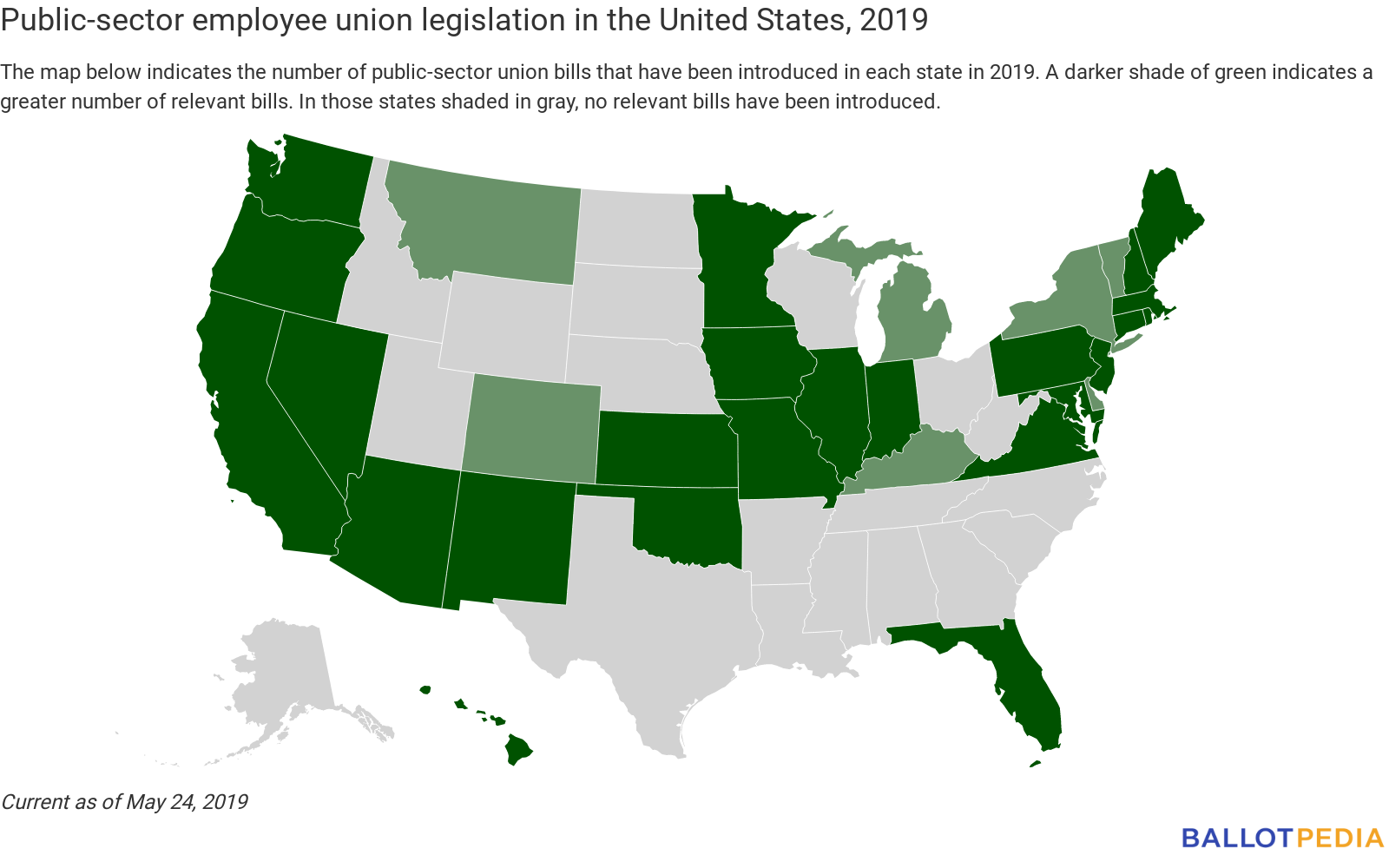In two separate rulings issued on May 17, the Iowa Supreme Court upheld a 2017 law that amended collective bargaining rights for the state’s public-sector workforce. The court ruled 4-3 in the state’s favor in both cases.
- What was at issue? In 2017, then-Gov. Terry Branstad (R) signed into law a series of amendments to Iowa’s public-sector labor relations law. As a result, collective bargaining units with less than 30 percent public-safety personnel (defined generally as firefighters and police officers) cannot negotiate insurance, hours, vacations, holidays, overtime, and health and safety issues unless their employers elect to do so. Collective bargaining units exceeding the 30-percent threshold are exempted from these restrictions.
- Who were the parties to the suits? The plaintiffs, American Federation of State, County, and Municipal Employees Council 61 (AFSCME Council 61) and the Iowa State Education Association (ISEA), argued the amendments violated their equal protection and associational rights under the state constitution. The defendants were the state of Iowa and the Iowa Public Employment Relations Board. Both cases were filed in state district courts, which ruled against the plaintiffs. The plaintiffs appealed these decisions to the state supreme court.
- How did the court rule? In each case, the court ruled 4-3 in the state’s favor.
- In the majority opinion covering both cases, Justice Thomas Waterman wrote: “The 2017 amendments do not infringe on a fundamental right of association. The plaintiffs ‘come to us with a problem suitable only for political solution.’ The plaintiffs are free to attempt to persuade public employers, such as the State and local governments and school boards, to voluntarily bargain over formerly mandatory terms. The plaintiffs otherwise must look to the ballot box and the elected branches to change this lawfully enacted statute.” Justices Susan Christensen, Edward Mansfield, and Christopher McDonald joined Waterman’s opinion.
- All four of these justices were appointed by Republican governors (Branstad appointed Waterman and Mansfield; Kim Reynolds appointed Christensen and McDonald).
- Chief Justice Mark Cady and Justices Brent Appel and David Wiggins dissented. In his dissent, Cady wrote: “[The] Iowa statute ends up treating many similarly situated public employees in Iowa differently based solely on the bargaining unit they belong to and not for the reason the constitution would justify different treatment of public employees. Our constitution requires laws to treat similarly situated people equally unless there is an adequate reason otherwise. In this case, the overinclusiveness and underinclusiveness written into the statute drowned this reason out.”
- Brent and Wiggins were appointed by Tom Vilsack, a Democrat. Cady was appointed by Branstad, a Republican.
- What are the responses?
- Senate Majority Leader Jack Whitver (R) supported the ruling: “Since its implementation, I have heard story after story of school districts and local governments implementing creative solutions to improve the education of Iowa’s students and the provision of services Iowans need. This reform is about returning power to locally elected officials and giving them the ability to pay more to great teachers and employees, fire the occasional bad actor and protect Iowa taxpayers.”
- Senate Minority Leader Janet Petersen (D) opposed the ruling: ” By taking away the rights of teachers, firefighters, nurses, correctional officers, and other public servants, Republican politicians have done harm to all Iowa workers. Working Iowa men and women are the real victims of the assault by the Branstad/Reynolds administration and Republican-controlled Legislature.”
- The case names and numbers are: AFSCME Council 61 v. Iowa (No. 17–1841) and Iowa State Education Association v. Iowa (No. 17-1834).
The big picture
Number of relevant bills by state: We are currently tracking 100 pieces of legislation dealing with public-sector employee union policy. On the map below, a darker shade of green indicates a greater number of relevant bills. Click here for a complete list of all the bills we’re tracking.

Number of relevant bills by current legislative status:

Number of relevant bills by partisan status of sponsor(s):

Recent legislative actions
Below is a complete list of legislative actions taken in the last week. Bills are listed in alphabetical order, first by state then by bill number.
- California AB314: This bill would require employers to grant employees paid time for certain union activities.
- Read a second time in the Assembly and ordered to a third reading May 20.
- Maine LD1232: This bill would prohibit employers from requiring employees to join a union or pay fees to a union as a condition of employment.
- Died May 23 (placed in legislative files).
- Oregon HB2016: This bill would require public employers to grant paid time to employees participating in certain union activities. It would also require employers to furnish unions with access to employees.
- Senate Workforce Committee work session May 21.
- Oregon HB3009: This bill would require public employers to provide unions with access to new employees. It would also permit individuals who are not union members to make payments in lieu of dues to unions.
- Senate Workforce Committee work session May 23.

